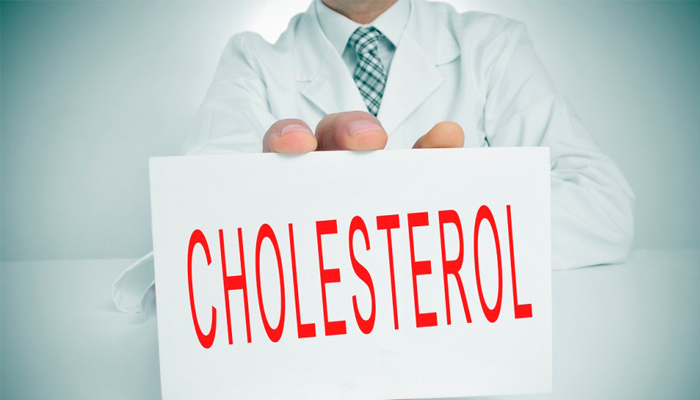According to the American Cancer Society, ovarian cancer is the most common type of cancer, and over 20,000 women go diagnosed with ovarian cancer every year. Ovarian cancer ranks fifth among cancer mortalities among women. It’s lead to the largest number of deaths among cancer patients. The risk of getting ovarian cancer is 1.33% and the probability of death from ovarian cancer is 1%. Close to half of women are diagnosed with ovarian cancer.
What is ovarian cancer?
Ovarian cancer is cancer that affects ovaries, the organs that make eggs and female hormones progesterone and estrogen in a woman’s body. Research shows that this cancer originates in the fallopian tube and spreads to the ovaries. Treatment of ovarian cancer can be easier if you get it diagnosed in early stage.
What Causes Ovarian Cancer?
The exact causes of ovarian cancer are not known. There are many theories on this. These include genetic changes that get inherited as well as genetic changed that are not inherited and occur during the life period.
Some of these focus on the things that alter the risk of ovarian cancer. For instance, pregnancy and use birth control pills reduce the risk. As these factors reduce ovulation (release egg), experts feel ovulation and ovarian cancer are related.
What is the risk factor?
- Late pregnancy
Women who have had pregnancies and continued with it until the end prior to 26 years age are said to be a lower risk compared to those who didn’t have.
Women who had the first pregnancy to the full after 35 or those who never had a pregnancy are at a greater risk of ovarian cancer
- Your age
The older you’re the more likely to get ovarian cancer post menopause. Further, if you’re undergoing hormone therapy, the risk is still more. Women who undergo estrogen hormone therapy without progesterone for 5 to 10 years are high-risk groups. In half of the cases, the age is over 65 years.
- Using birth control techniques
Oral contraceptives have been found to reduce the risk of ovarian cancer. However, it’s true only when you use the contraceptive three to six months, and if longer it better. The lower risk happens over many years after you stop using the contraceptives.
- If you’re obese
The heavier you are, the risk is more. Deaths from ovarian cancer are greater in obese women than those who are not obese.
Research shows that eating saturated fat is one of the causes – if you eat them more, you’d be at greater risk. This is because fatty foods have estrogen stimulating factors.
- Family history
Women with sister, mother, or daughter had ovarian cancer are at a higher risk. The high risk could also originate from your father’s side.
Also, if any of your family members had breast or colon and rectal region, the risk of ovarian is higher. This happens because these cancers happen due to change in genes that lead to cancer.
- Androgens
Androgens, a class of male hormones increase as a result of danazol – a drug has been found to increased the risk of ovarian cancer. Though there are no firm findings who is at greater risk.
- Tubal ligation and hysterectomy
Tubal ligation that’s getting tubes tied surgical is likely to reduce the risk of getting ovarian cancer by as much as 66%. Likewise, the removal of the uterus with ovaries intact is also likely to lessen the risk of getting ovarian cancer.
- PTEN tumor hamartoma syndrome
This leads to cancer of thyroid and breast, and leads to a higher risk of ovarian cancer caused PTEN gene inherited.
What happens in ovarian cancer?
Located in the lower belly, the ovaries are twin organs and the cancer happens when one or both ovaries have tumors.
- Three types of cells constitute the ovaries. Each of these can give different tumors: tumors that affect the outer area of the ovary are called epithelial tumors. These tumors constitute the largest majority.
- Germ cell tumors occur in the egg-making cells. And, stromal tumors start from tissues that bind the ovaries and make estrogen and progesterone – the female hormones.
- Most of the tumors mentioned here are benign (not cancerous) and do not spread elsewhere.
- Experts are unsure about the root cause of ovarian cancer. However, one thing for sure they say is that the cancer is due to changes in DNA.
- Doctors have been holding responsible factors such as genetic issues – damaged BRCA 1 or BRCA 2 (genes). Women possessing these genes are at greater risk of getting ovarian and breast cancer. For women having those factors, it may be advisable to undergo surgical removal of the ovaries during menopause.
What are the symptoms in ovarian cancer?
Due to the ovaries’ position in pelvis zone close to the bladder and intestines, you may experience the symptoms in stomach and intestines.
- Bloating
You may feel bloating in your belly. Bloating is feeling having gassiness and you feel discomfort, which you’re likely to have after a large meal. The discomfort is because of the pressure exerted on the adjoining organs by the growing tumor. You feel full even after a small meal.
- Frequent urination
You will feel like to pee, feel urgency and pain. This happens in early stage of the cancer.
- Loss of weight
You may lose weight, which you cannot account for without seeing your doctor. Research shows 40% people loose weight (5% or more loss).
- Constipation
Your bowel movement becomes irregular because of constipation or irritable bowel syndrome.
- Backache
You may have back pain that’s not any known reason
- Nausea
You may feel sick and vomit.
Can ovarian cancer be prevented?
It can be prevented by managing the various risk factors. The more you take care of them, the less is the possibility of occurrence of the cancer.
Most women have one or multiple factors that contribute to ovarian cancer. Each of the factors adds to the risk and increase the severity of the cancer. Prevention involves a strategy to reduce the effect of the growth of germ cell and special cells (stromal).
What are the stages of ovarian cancer?
To ascertain the type of treatment it is important to determine the stage of ovarian cancer. Staging of ovarian cancer is to know how far the cancer has spread. To determine the stage, samples of tissues is taken from pelvis and abdominal regions.
These stages include Stage 1, Stage 2, Stage 3 and Stage 4.
Stage 1
In Stage 1, there are three sub-stages. The cancer limited or to one ovary is 1A, and if it happens in both the ovaries, it’s 1B. When there are cancer cells are outside the ovary, it’s 1C.
Stage 2
In Stage 2, cancer cells drift from the either or both the ovaries to the other parts within the pelvis. In stage Stage 2A, cancerous cells appear on the fallopian tubes, the uterus and in Stage 2B it spreads to rectum and bladder.
Stage 3
In Stage 3, cancerous cells move to tissue beyond the pelvis region or the lymph nodes in the region (Stage 3A). And, cancerous cells are found outside the liver or spleen in Stage 3B. Cancer cell deposits of about a quarter if an inch are found on the abdomen or outside the liver or spleen and not inside either of them in Stage 3C.
Stage 4
In State 4, cancer cells move tissues beyond pelvis and abdominal regions. The cancerous cells are found in fluids in the lungs (State 4A). In Stage 4B, (the most advanced) the cancerous cells reach the inside of the liver or spleen or other organs such brain or skin.
How can I survive with ovarian cancer?
When you have ovarian cancer, you’re worried and the mental agony you suffer debilitates your will only to make you hopeless. You’ll find it hard to perform even simple household chores, you’ll have anxiety, which may push you a state of depression.
When to see the doctor?
The nature of the symptoms of ovarian cancer is that you experience them suddenly, and each symptom at different times. You experience the symptoms each day, and they don’t subside. The pattern of the symptoms is an alarm that you need to see doctor immediately.
What if diagnosed with ovarian cancer?
If you’re diagnosed positive, don’t panic. Remember to take your doctor’s advice. At times, the symptoms may worsen. Being diagnosed and live with ovarian cancer is a kin to standing up to life challenges – as you do. You need to learn to cope with a new disease and as you follow your doctor’s advice and keep on practicing, you can find your life with full of hopes.
Conclusion
It’s important to stay alert to the symptoms discussed here. Leading a life free from stress and anxiety is as important to as taking care of your health following your doctor’s guidance. Extend your social network and participate social gathering. All this helps quell stress and helps cope with ovarian cancer.



